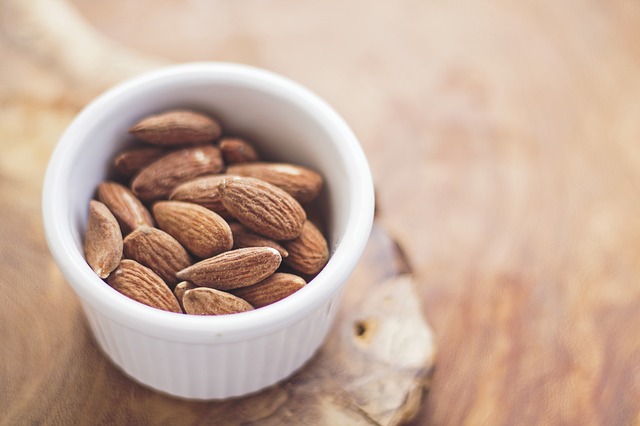I grew up in the era of low sodium diets. From a very young age, I can remember salt being blamed for a plethora of illnesses and conditions, including hypertension, stroke, and kidney disease.
Even today, the Institute of Medicine is pushing government to place higher standards for sodium content in packaged foods. The American Heart Association even has a campaign called the “National Salt Reduction Initiative”.
There is certainly good reason for us to be worried about the health of America. About 20 percent of American men between 35 and 44 have high blood pressure.
However, we also have good reason to question the “salt status quo” in our culture. Mainly because the average American doesn’t understand the difference between salt and sodium, or how to eat salt in it’s proper form.
A medical study that was published in The Lancet in March of 1988 found that people who eat lots of salt live longer than those who avoid it. So, what’s going on and where is this misinformation coming from?
Difference Between Salt and Sodium
The words salt and sodium are not interchangeable, even though they are used that way by many government and public health agencies. Salt contains sodium but it is not sodium in and of itself.
Sodium is not found anywhere by itself in nature. Salt is actually made up of sodium and chloride (sodium chloride) bound together. The two compounds separate from each other when you ingest salt, making the sodium available for your body to use.
Most salt is made up of roughly 40% sodium and 60% chloride.
Now here’s the kicker:
Your Body Needs Salt
Your body needs high quality salt to survive. Your body can’t make it and your cells need it to function properly.
Salt is important because it:
- Helps maintain muscle function and hydration
- Acts like a sponge and helps your body maintain hydration
- Stimulates nerves
- Helps with proper adrenal function
- Is required for many biological processes of the body
Salt also contains magnesium which aids in:
- The production of enzymes
- Nerve transmission
- Bone formation
- Forming tooth enamel
- Resistance to heart disease
Babies and children also need salt for their developing brains.
As you can see, salt is an essential part of a balanced diet. In fact, drastically reducing salt in your diet can be just as harmful as consuming large amounts of it. Not enough salt in your diet can cause muscle spasms, irregular heart rhythms, increased risk of heart attack in hypertensive people, and even sudden death.
So, if salt isn’t the problem, what is?
The Problem: Hidden Sodium
Our bodies need salt, but what they don’t need is too much hidden sodium that is already separated from the sodium chloride compound. As with most foods, our bodies need to be able to process salt from it’s most natural form. Sodium doesn’t allow our bodies to do that.
We really need to be careful of hidden sodium in pre-packaged foods, as our taste buds don’t necessarily register the amount of sodium we are taking in.
When we cook at home and add salt only to taste, our bodies are better able to register our salt intake and let us know when something is too salty.
If you do buy any packaged foods, look for foods that do not contain added salt. It’s better to salt it to taste at home (hopefully with unrefined sea salt).
Sources of hidden sodium include:
- Tomato sauce
- Soups
- Canned/Jarred Foods
- Lunch meats
- Processed cheese
- Condiments
- Salty snacks
Unrefined Sea Salt VS Commercial Refined Salt
Most people do not know that the “salt” they buy in the store is far from it’s natural state.
In fact, all current mainstream research that has been done has been on refined, processed, chemically altered table salt or refined sea salt.
Table salt is highly refined and processed, removing most of the magnesium and trace minerals found in natural salt. Additives are used to keep the salt dried out, including aluminum compounds, which are not required to be listed on the label.
The refining process destroys the natural iodine contained in salt, so it is usually added back in using potassium iodide. Dextrose is also added to stabilize the salt, affecting the color. Bleaching agents are used to make the salt appealing for sale.
It doesn’t take much digging to see why we currently have a problem with salt in our modern society. Refined salt is missing much of the goodness of nature that unrefined salt provides.
Refined sea salt is about 99.9 percent pure sodium chloride as opposed to unrefined sea salt which is about 95 percent sodium chloride, 4 percent potassium chloride, and another 1 percent consisting of over 50 trace minerals including iron, magnesium, sulfur, and iodine (your body requires all of these minerals for healthy function).
While it may be more expensive, unrefined sea salt has a stronger taste, so not as much is needed on food.
Unrefined sea salt will be a bit different than you are used to. High quality sea salt is sun dried, contains microscopic sea life, is off-white (usually pink or gray), and may be moist.
Himalayan sea salt is some of the highest quality sea salt around. Independent studies done on unrefined sea salt, particularly Himalayan Salt, have shown these benefits:
- Up to 10% increase in hydration of the body
- Stabilization of pH and oxidative stress numbers
- Increased respiration, circulation, organ function, and nervous system functions
- Better quality of sleep
- Increased energy
- Increased concentration levels
- Weight loss
- Hair and nail growth
Don’t know where to find quality unrefined sea salt?
Click here to find out where I buy my favorite sea salt.
~
This article is featured at: The Problem with Processed Food, Natural Living Monday


